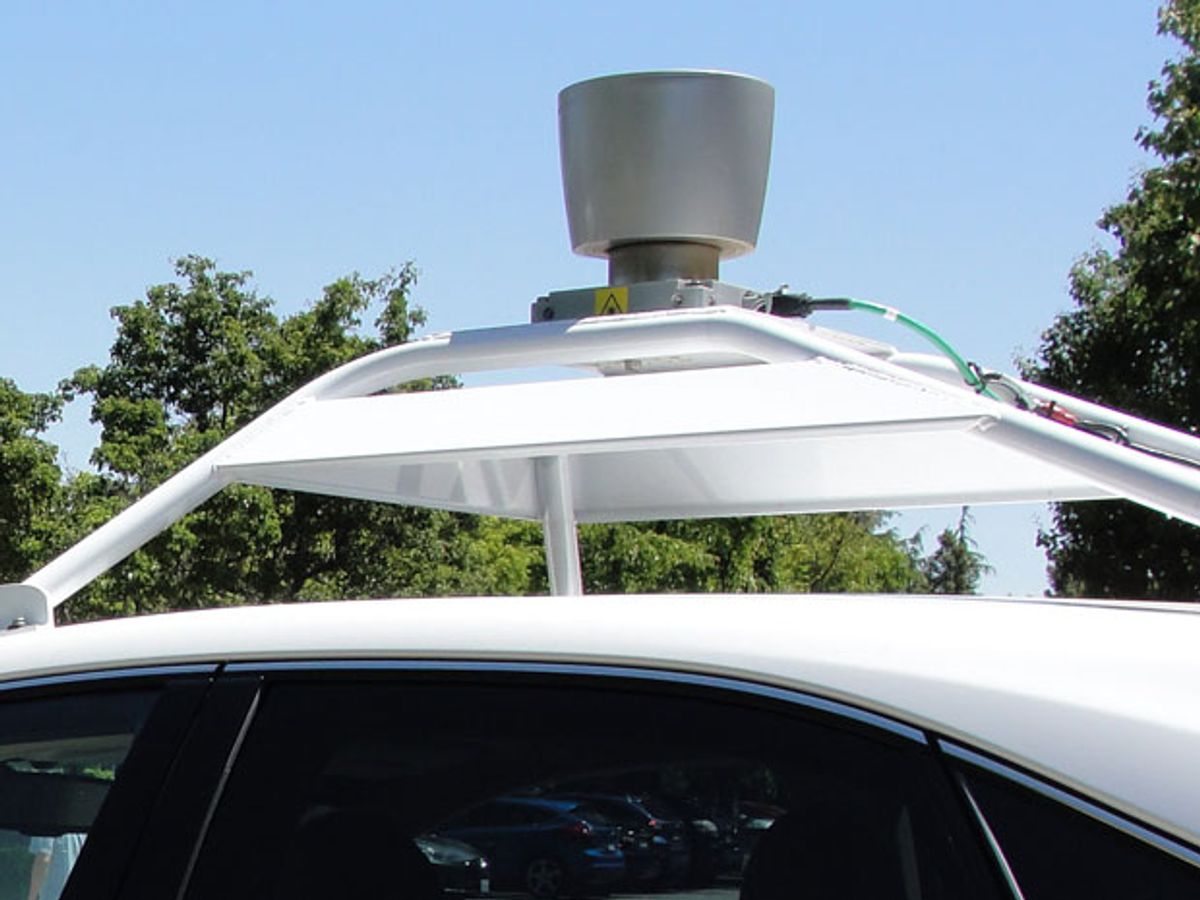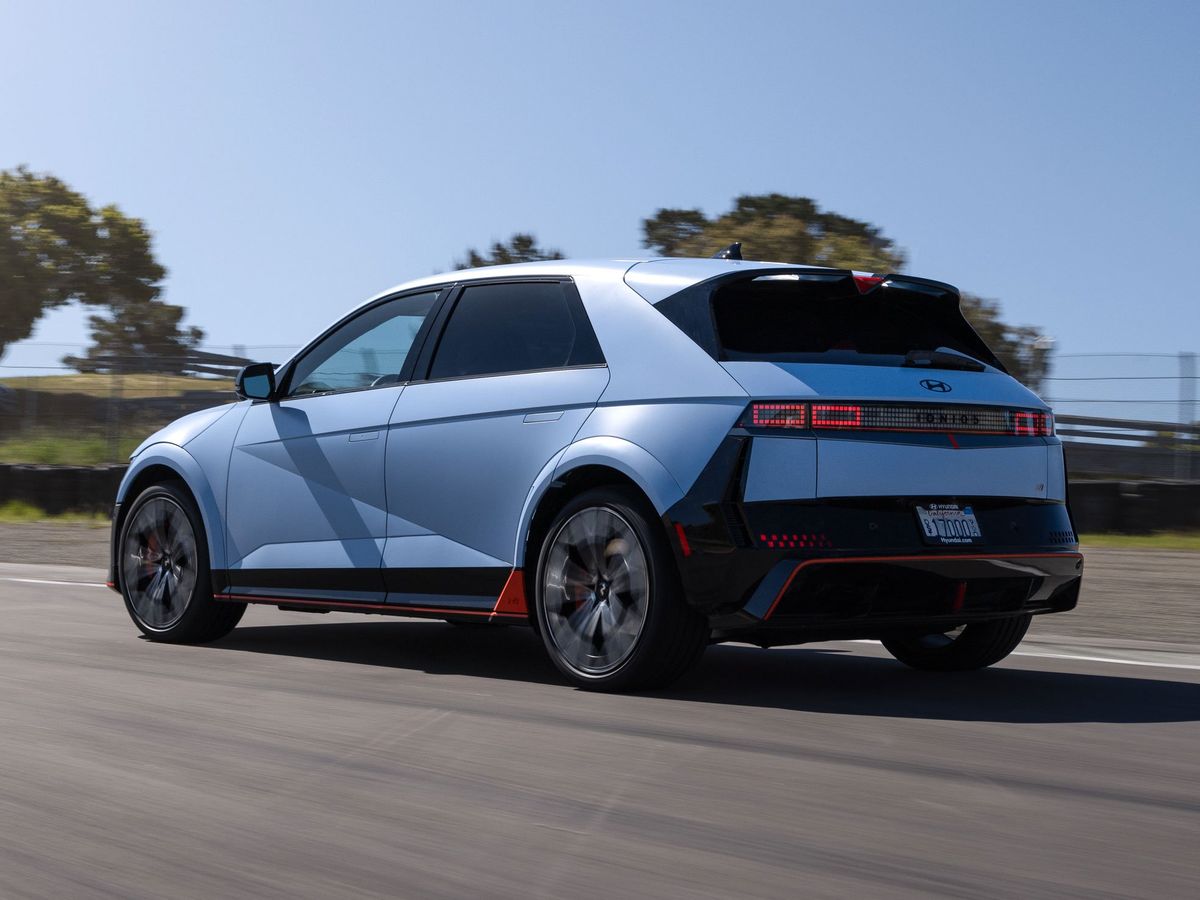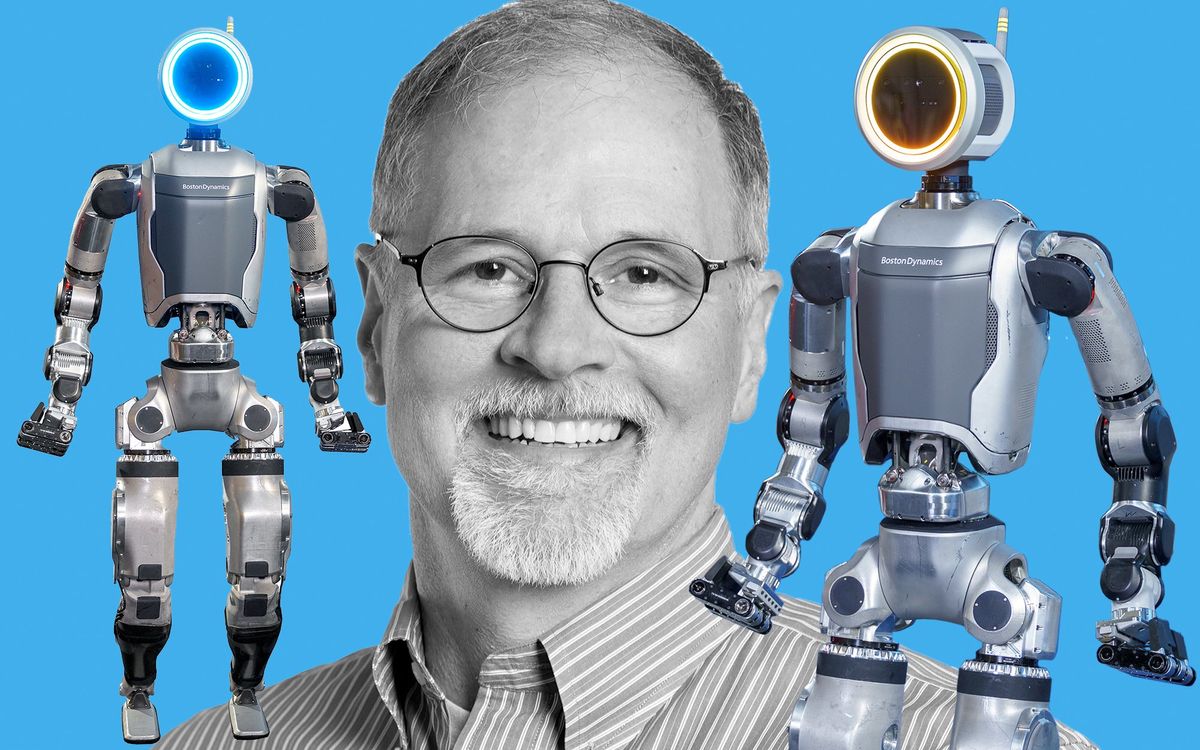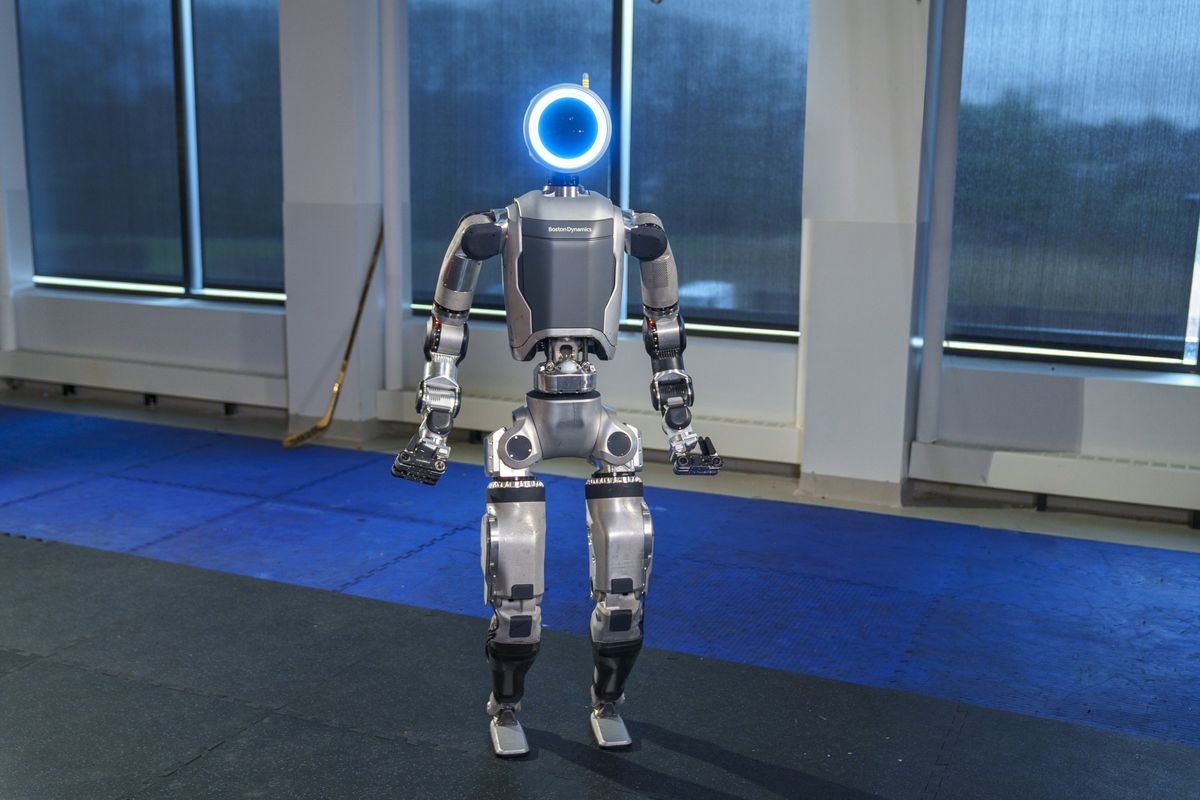Some auto companies have harrumphed their reluctance to embrace 3D LIDAR, a laser imaging system, saying that they hate the look of the revolving, roof-mounted tower that makes the Google car stand out [pictured above].
But the real reason has been cost: LIDAR capable of conning a full 360 degrees around the car doesn't come cheap. Yet.
It will, though, as Moore's Law and mass production reduce the price from the US $70,000 of the Google Car setup to sums denominated in the hundreds, as academic researchers recently said. Now one of the world's biggest auto suppliers is putting its considerable weight behind them.
"At Bosch we are convinced we need LIDAR for the future," says Jan Becker, director of the Bosch Research and Technology Center in Palo Alto, Calif. He was speaking yesterday at a San Francisco conference on automated vehicles.
It's not that LIDAR will supplant radar and conventional camera systems as the eyes of tomorrow's self-driving cars. Rather, it will serve as a third eye (or fourth or fifth, depending on whether you count ultrasound, GPS and inertial guidance systems).
Redundancy is important not merely for sensors but for all critical system, Becker said. He said his company had demonstrated a car braking system with two independent methods of operation, so that a failure in one would lead not to disaster but to a lower, but still tolerable, level of operation.
Redundancy is a good idea for control systems that might be deliberately targeted by hackers. "I am sure we will see deliberate attacks on cars, and that we must increase security," Becker asserted.
Philip E. Ross is a senior editor at IEEE Spectrum. His interests include transportation, energy storage, AI, and the economic aspects of technology. He has a master's degree in international affairs from Columbia University and another, in journalism, from the University of Michigan.



